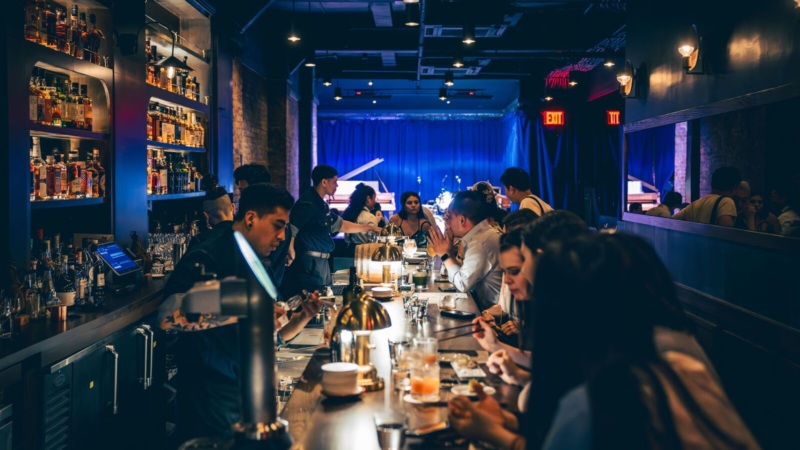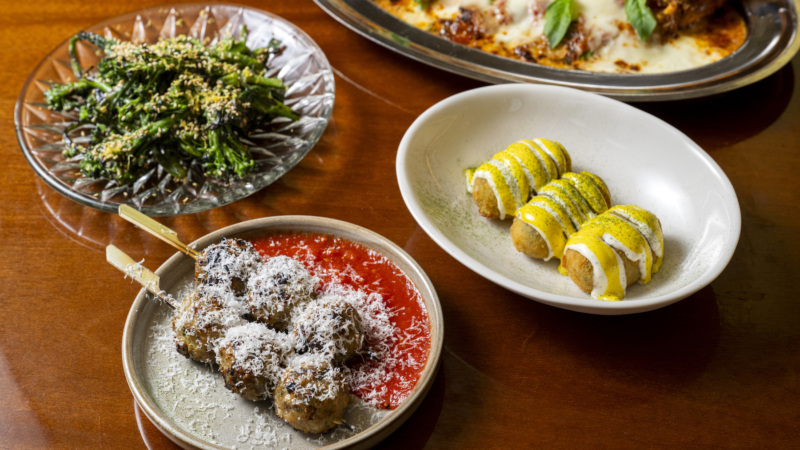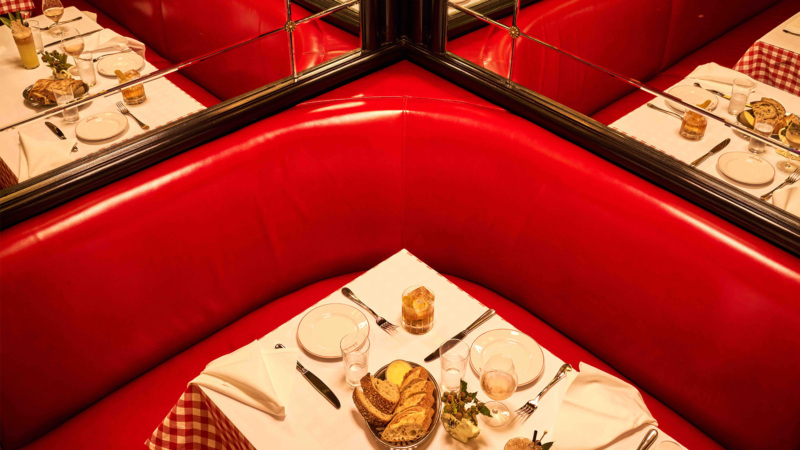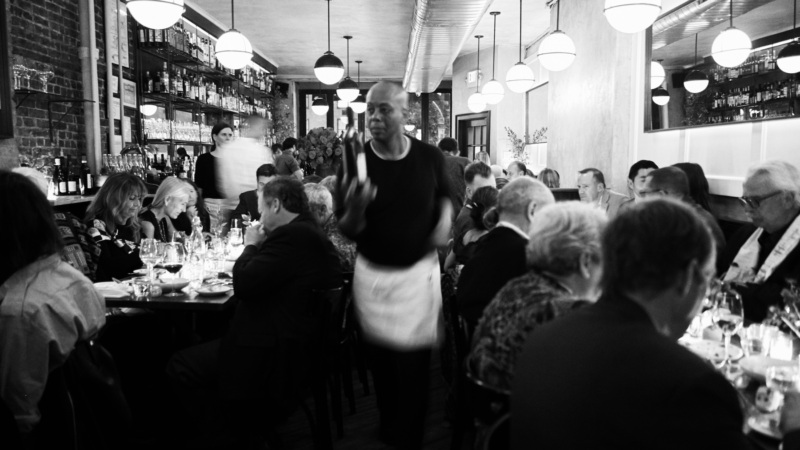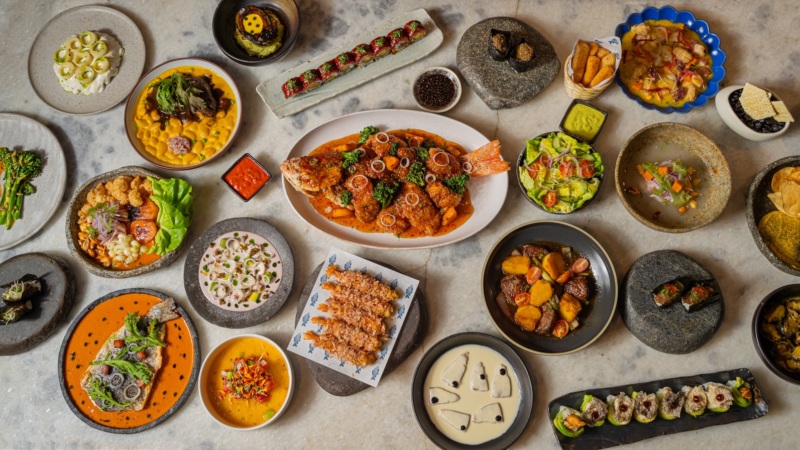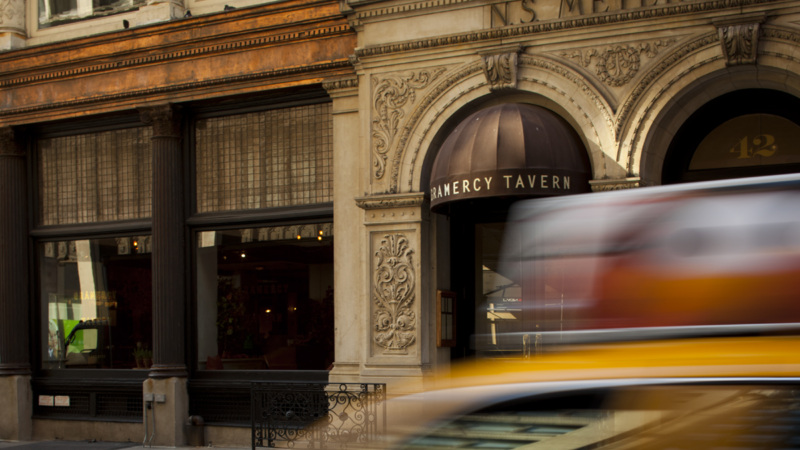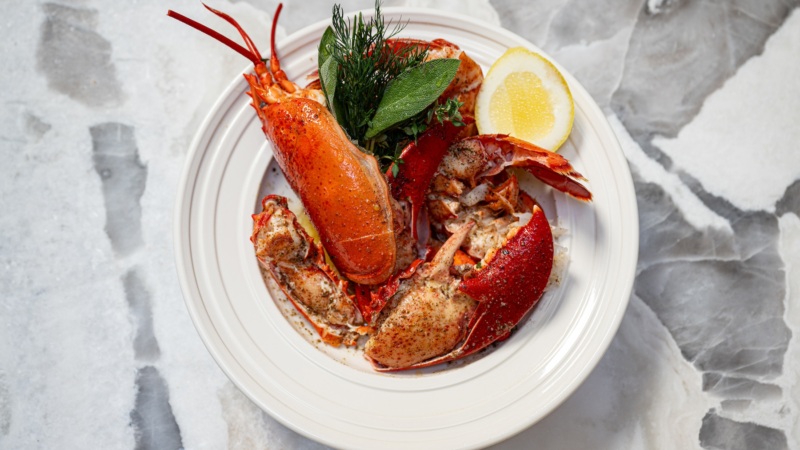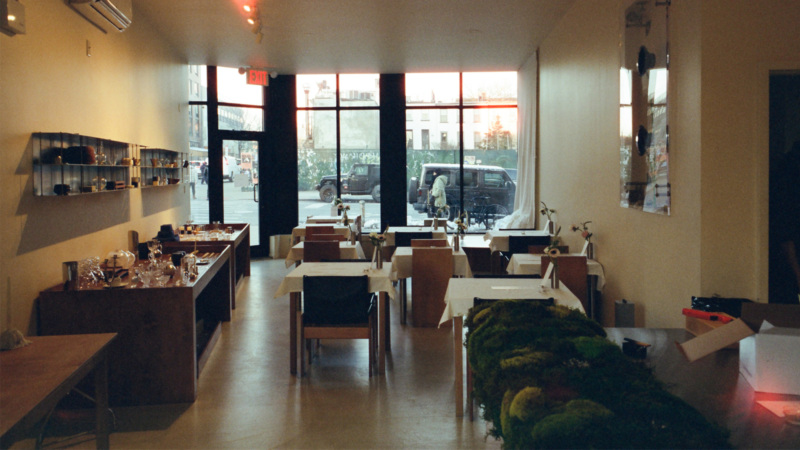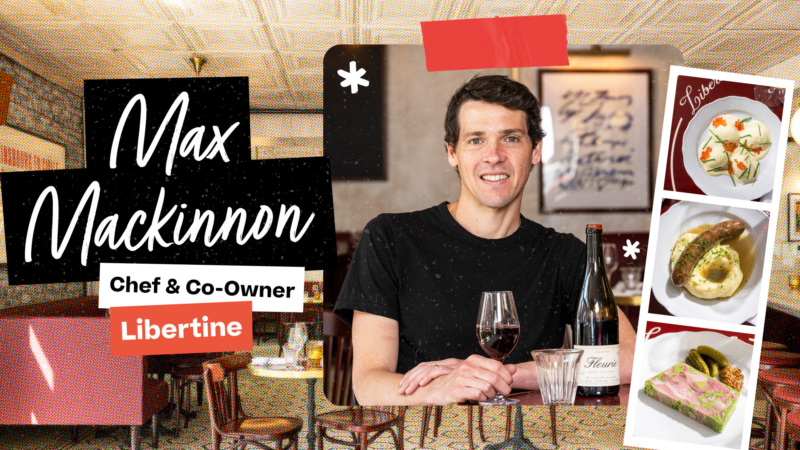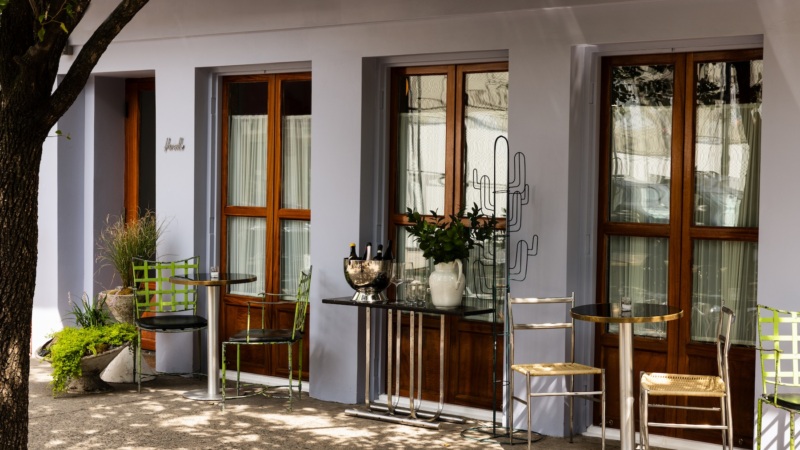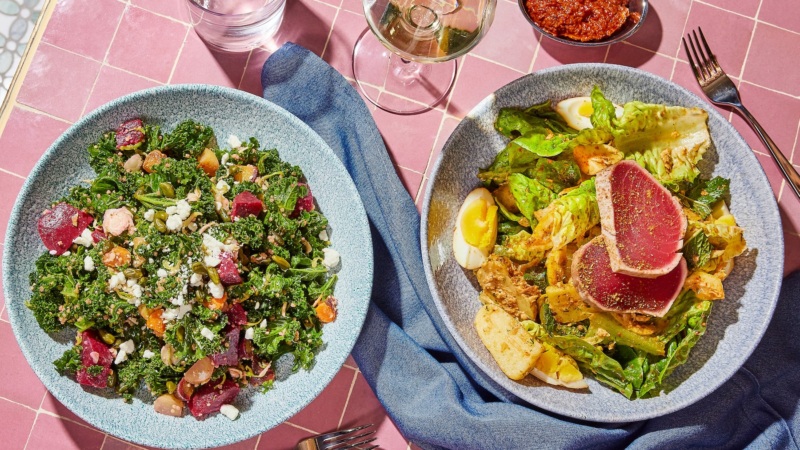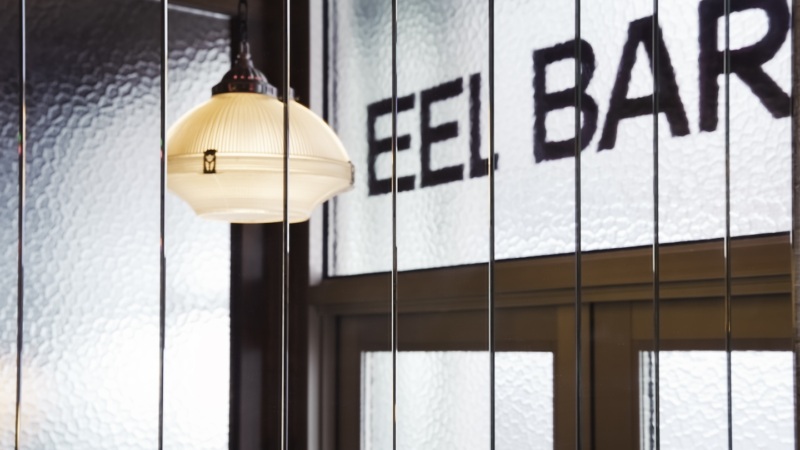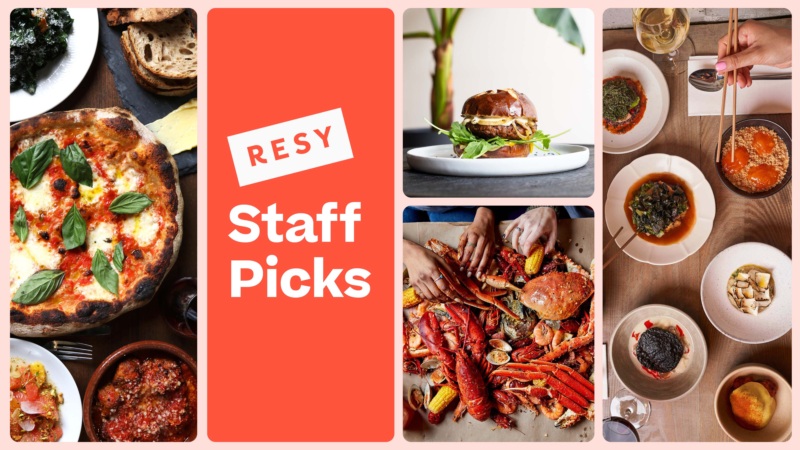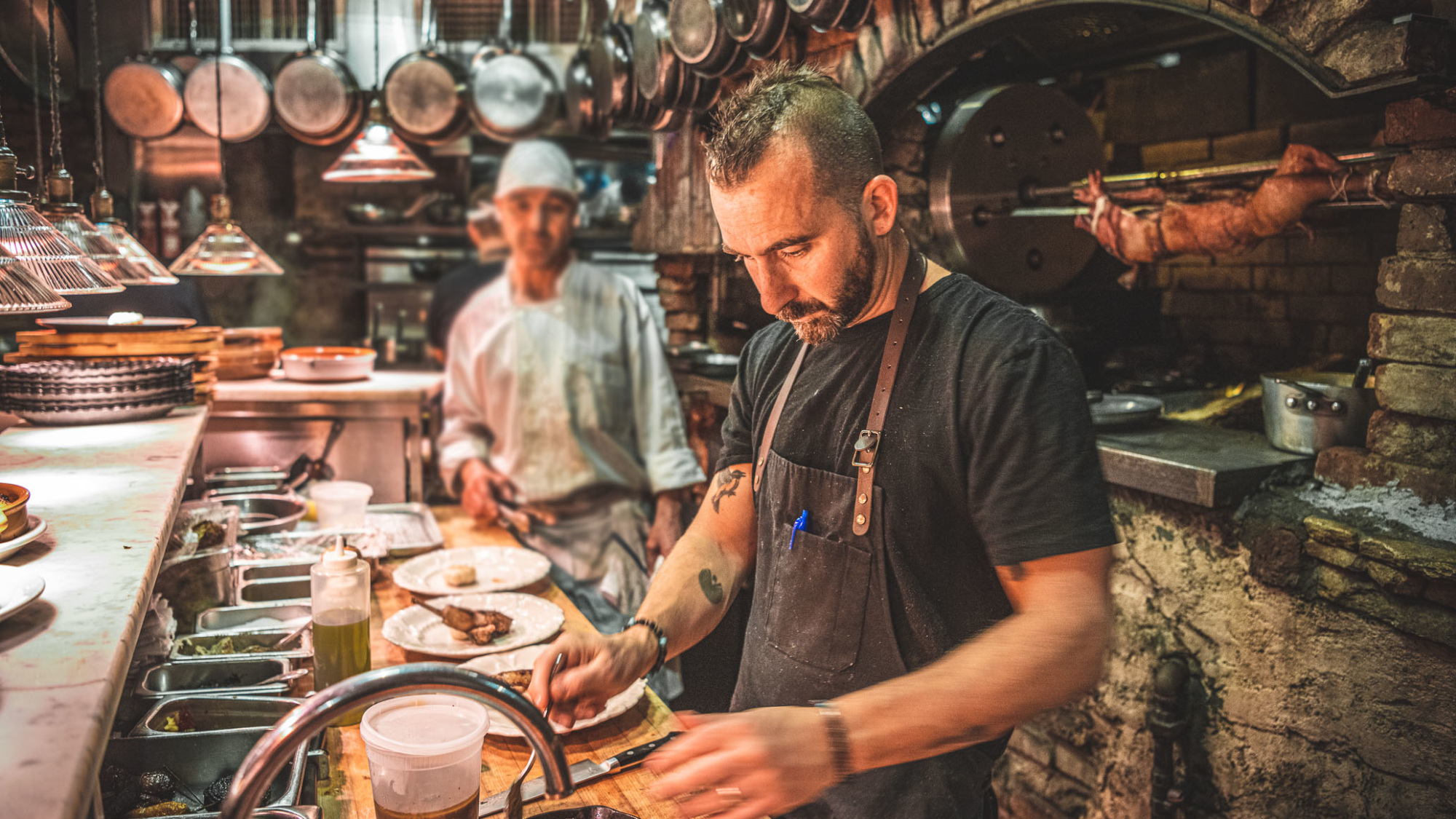
At Peasant, Marc Forgione Finds New Twists in a Familiar Space
In January 2020, when Marc Forgione was handed the keys to Peasant, a beloved rustic Italian restaurant that’s stood on Manhattan’s Elizabeth Street for more than 20 years, the veteran chef had no idea that he’d be closing its doors a little over two months later.
Neither did Frank DeCarlo, Peasant’s original owner and chef, who had decided to retire at the end of 2019.
“You know, what’s really funny is that about three months into the pandemic, [Frank] called me,” says Forgione, “and he was like, ‘I hope you know that I had no idea this was going to happen. I had no idea. I know it maybe looks like I did, but I really didn’t know.’ It was pretty funny.”
After temporarily closing Peasant, Forgione and his team reopened it in the summer of 2020, and slowly but surely, he’s tried to make it more of his own — while retaining what’s made the restaurant so special to so many — himself included — over the years.
Longevity is something Forgione values, and practices in his own work. He’s done the celebrity chef thing, having been on Food Network’s “Iron Chef America” in the early 2010s. His father is the acclaimed chef Larry Forgione. And it was at his father’s storied New York restaurant, An American Place, where he got his start at the age of 16 in the kitchen.
Eventually, he worked his way up to becoming the corporate chef of Laurent Tourondel’s BLT Restaurant Group, and in 2008, he struck out on his own and opened his own eponymous restaurant, fondly referred to as “Forge” by his staff and his regulars, in Tribeca. In 2013, as a co-owner, he opened the Laotian restaurant, Khe-Yo, also in Tribeca.
And he’s still trying to expand: In fact, he’s currently working on opening a new restaurant in the West Village as we speak. And he’s in the process of moving Forge to a new location in downtown Manhattan, too. Resy sat down with Forgione recently to discuss how the past two years have impacted him and his team, and for his thoughts on longevity in the restaurant business.
This interview has been lightly edited for length and clarity.
Resy: It’s been almost two years since we last spoke. How have these past two years been for you?
Forgione: It’s a heavy question. Overall, thank God, we’re blessed, and everyone is happy and healthy. Both restaurants are doing very well. Instead of closing down and playing defense, I went the other way and took a chance.
I took this opportunity in the last year and a half, in particular, to kind of regroup. I have new business partners in Apres Cru Hospitality. We are forming a new hospitality group that I’m going to be running and be in charge of, which is exciting. It’s going to be called Respect Hospitality. We’re opening another restaurant in the spring, so when the dust settles, we’ll have Restaurant Marc Forgione, Peasant, and this new entity.
Is this the same restaurant (Davide) that was slated to open in the Meatpacking District?
No, the one in the Meatpacking fell through. This one will be in the West Village.
How did this all happen? What can you tell us about the new restaurant?
So, about two years ago, just like everyone else who was really feeling the doom and gloom [from the pandemic], I happened to meet these guys [from Apres Cru] in the summer of 2021, and they came by and they basically said, “We love Forge — how can we help?” And it just kind of blossomed.
They didn’t know we already had plans to move Forge — we’re in the process of moving it to 30 Hudson as we speak. So, when they heard about it, they got excited, and they didn’t even know I had Peasant. When I told them there was this possible wine bar, downstairs below Peasant, they got really excited — two of them are master sommeliers.
And with this third project, it was almost a year ago today and I was just driving past this restaurant that had a space available sign. I didn’t plan it, but it just kind of happened.
You know, Peasant is a very iconic space and so is 30 Hudson, where Forge is moving. It’s another iconic space that housed Blue Danube for a number of years. And this third space that we’re opening is another iconic place, which you’ll find out about soon enough.
I feel like this is an opportunity I’ve been given by the universe. I believe so much in the history of the culinary scene here in New York — obviously growing up with this, with my seeing my dad, and just being around some of the best chefs that there are here. I feel like I’m getting the baton passed to me in these spaces and I want to do my best to kind of show my respect, to carry the torch, and to make sure these spaces don’t turn into a Starbucks or an Apple Store.
You said something about how you didn’t want to just play defense in this pandemic. Can you elaborate on that a bit?
It was definitely about taking a chance. I had the utmost confidence that we were going to come out of this, and that we were going to be all right. I still have the confidence that, when the dust settles, everyone’s going to come back tenfold. We’re so tired of being restricted. I was basically out there hiring at a time when business was really hurting, but I knew that I needed to have the right pieces in place for when the world was ready for dining again.
I had to take some lumps, but that’s also where Apres Cru came in and helped financially, and basically, I learned this is a gotta-bet-big-to-win-big kinda thing.
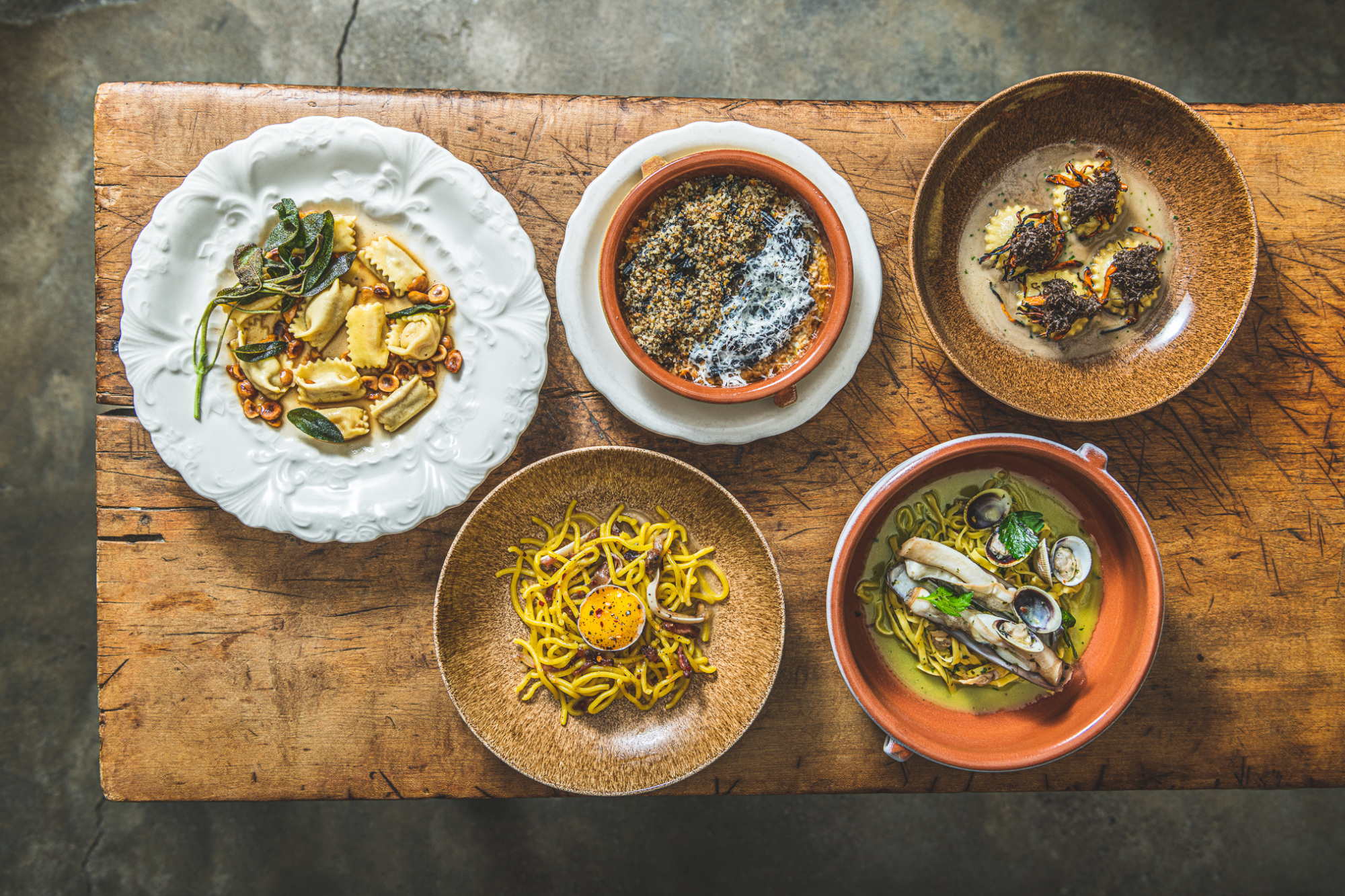
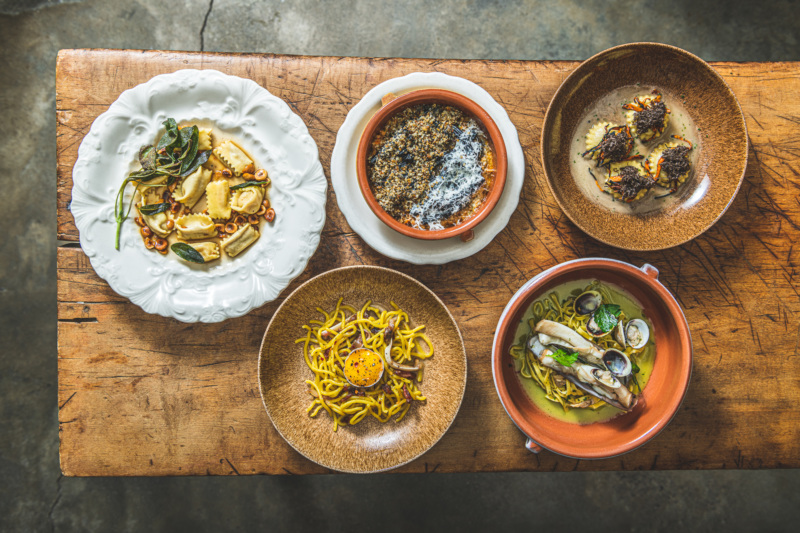
When we spoke last, we were trying to figure out what the restaurant industry might look like after the pandemic. Two years later, do you think the pandemic became this catalyst for change within the restaurant industry?
I’m sure you’ve talked to other chefs and restaurateurs about this. I think COVID had a funny way of stripping you down to the bare necessities and it also cleaned everything down to the core of people who were supposed to be there.
I lost some people, whether it was because they moved or they just realized they weren’t good for me or my company, which I may not have noticed if it weren’t for COVID. It was almost like a natural selection process, so that the people that were left were the ones who were supposed to be here, and the people that I lost were supposed to go.
A lot has been said about how this pandemic has impacted restaurant workers. Do you feel like the pandemic changed your perspective on your staff?
The last two years, man, it’s so hard to put into words the things these guys have had to deal with: the two different shutdowns, and then going on unemployment. Trying to survive and feed their families and pay their rent. Having hours cut. It’s been insane.
One thing I‘m extremely proud of is that, one way or another, I never fired one person over the last two years for financial reasons. We just figured out a way to get them a paycheck every week. At the end of the day, it’s the thing I’m most proud of. I never had to say that the restaurant can’t afford to pay you. They all took lumps for it. Some of them had to take a pay cut so that the whole team could survive, and they all did it.
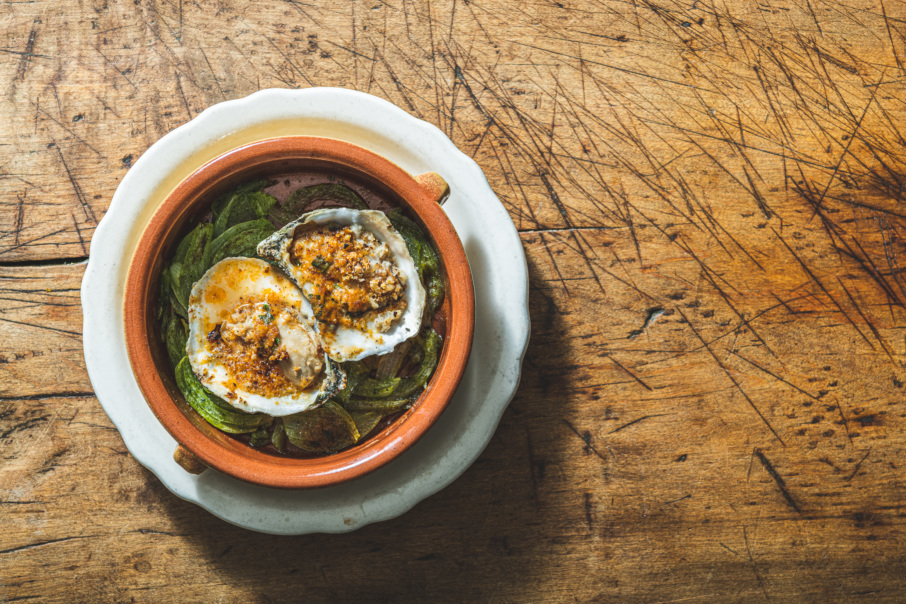
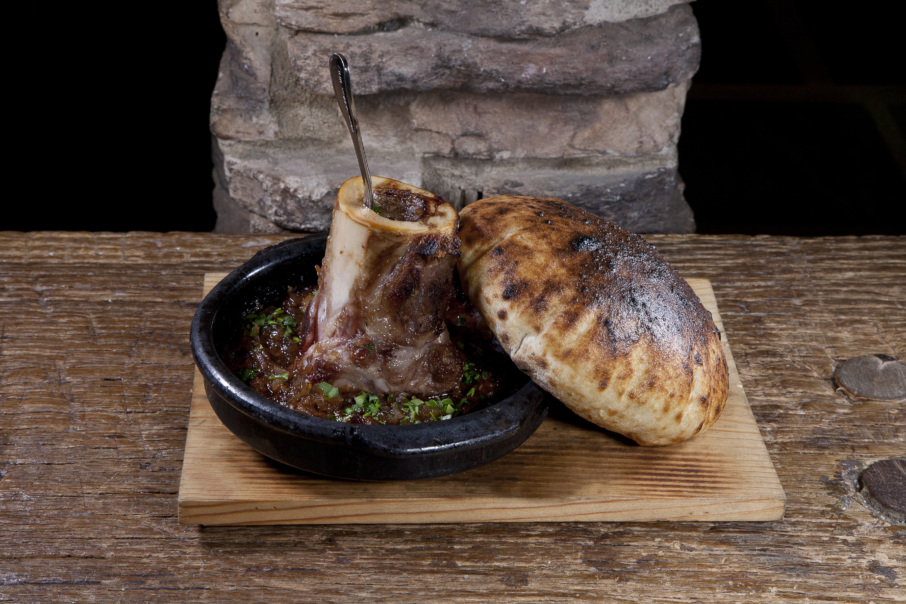
Let’s talk about Peasant. You took it over in early 2020, just before the pandemic hit, and then you had to try to keep it afloat throughout. What was that like?
It was a real roller coaster. We took it over in January 2020. I honestly didn’t want to make too much noise about it in the beginning, just because I was taking it over, and I needed to figure it out. Everything happened so fast with Frank [DeCarlo] retiring and giving it to me. I wasn’t even sure what I was gonna do with it. I just knew he’d honored me with taking the reins of this thing and I couldn’t say no.
We took it over in January, and I was changing the food to my food but I kept most of the kitchen staff, so it was a big adjustment for everybody. Most of the front-of-house staff ended up leaving because I think it was just time for them to go. We were just starting to hit our stride right around March; the first three weeks of March were the busiest three weeks I had since I took it over. It just seemed like there was something magical happening. I was just getting my bearings. I was working in the kitchen on the grill station because I needed to figure out how this place worked, one day to the next. We had our busiest week ever, and then we were shut down the next day. When Peasant shut down, I didn’t really know how to reopen it.
With Forge, not that it was easier, but I had been at the restaurant, and we had been so vital to that neighborhood in Tribeca, we just started making burgers and setting up a grill outside. But at Peasant, because I’d only been there for 10 weeks, I didn’t really know how to reopen the doors. I didn’t know what to do.
That’s when this whole sourdough pizza thing came into play. I hadn’t gotten to the pizza yet before — it was still the old Peasant pizza dough that we were using, but during shutdown I started to play with sourdough, just like everyone else, and I created this pizza dough that I knew was going to be really special. A light went off in my head, like maybe this is the way to reopen. So, we reopened the restaurant as a Peasant pizza pop-up.
The world was really weird then; you could only eat outside. I didn’t want to do anything fancy, and I wanted people to come and just sit down at a table. It sounds crazy, but that was in, give or take, June 2020, and at that point, we’d all been cooped up in our houses for two or three months. So, we did pizza and sandwiches; I just wanted it to be super-casual. It was really tough. This was before anyone knew how to do it, and this was before we had anything set up in the street. I remember we had a 16-foot deck and I specifically remember one day, we did $1,000 in sales and that was a big accomplishment.
Looking back, that summer and that fall [of 2020] was a beautiful moment in Manhattan. Then we had the Open Streets [program], so we could have tables in the street, and it felt like a block party. Right next to us is this other restaurant, Lovely Day, and between the two of us, we probably had a hundred people out there every night. It was loud and fun. We were writing the rules as we went. If people are going to come, we’ll cook. Then the winter happened, and the second shutdown, and I think that was even harder than the first one. It felt like we were going in the right direction, and someone just slammed the door again.
The beginning of this year, this January, was really hard. It was a really shitty way to end the year. The winter in 2021 was actually really good; people were happy again, and it felt like a holiday season and we were doing corporate events. I thought, “We’re gonna be all right,” and then, eerily again, one day to the next, it went from a packed restaurant on a Tuesday to everyone cancelling their reservations for that Friday. But now we know what to do and we know how to get through this. We were planning on being slow through spring but, knock on wood, since February 1st, we’ve been all right.
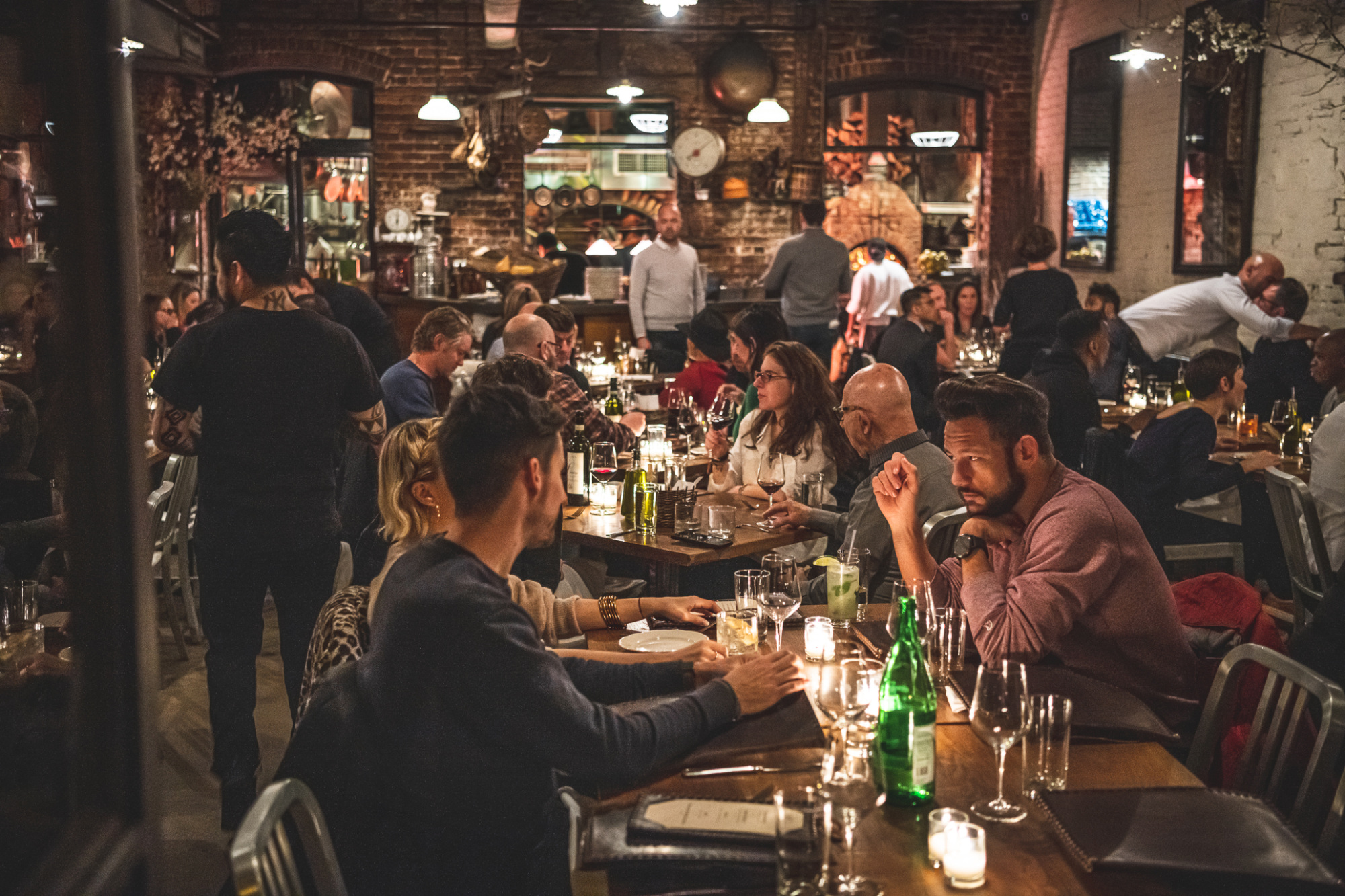
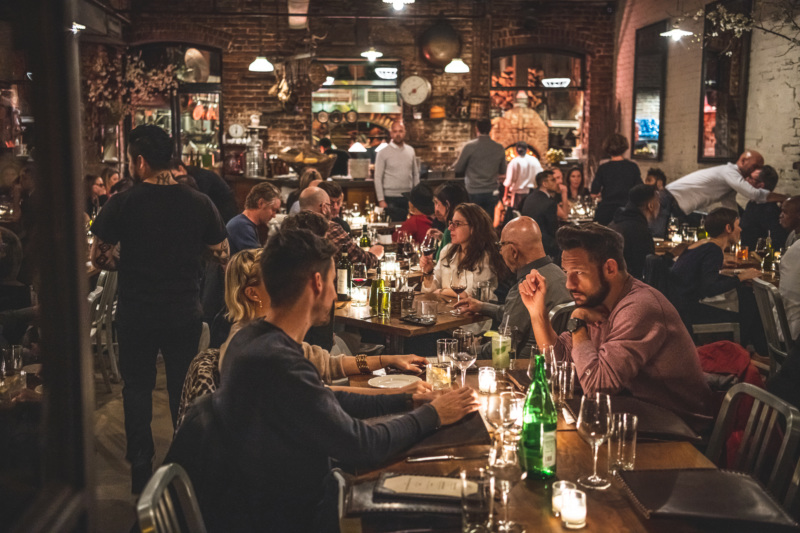
What was your relationship to Peasant like when you were a diner first? Before you owned it?
Peasant was, arguably, my favorite restaurant before I took it over. I lived on Mulberry between Grand and Hester. It’s like the evolution of my life. I couldn’t afford to eat there when I first moved there, but then as I had some good turns in my career … I don’t even know how many times I’ve eaten there, but it was in my top five of favorite restaurants.
I loved the vibe, the ambiance, the feeling of being there. The food we’re serving now, and the food Frank was serving there, you can’t replicate it unless you have that grill and that oven. It’s impossible. When I used to eat there I’d say to my now-wife, “I love this restaurant. I love the food. I wish I could work in a kitchen like that.” I used to say that all the time.
Dovetailing into now, I try to make sure that when we’re coming up with new menu items here, we showcase the grill and the oven and we rotisserie the chickens and the whole suckling pig. We have a whole section of appetizers that come out of the oven; we always have at least two to three pastas that are finished in the oven.
I think that was the hardest part of evolving into this restaurant. It takes a while. I’m still learning it, but it took a while to cook in his style. When I first took it over, I think I was doing too much — grilled lamb chops with grilled radicchio and grilled potatoes — and now I think we’re a little more balanced and having fun with the delicate kind of balance that you have to have.
Has Frank been to the restaurant since you took it over?
He hasn’t been in to eat since I took over, but we talk every once in a while.
For a classic place like Peasant, there’s always this struggle between introducing new things and keeping things the same. How have you tried to approach that careful balance?
I think in the beginning, one of my biggest faults was being almost too respectful of what Peasant is and what Frank did there, and I think once we just started to work as us, and not what they were, that’s when I think things really started to groove. I would have regulars come in when we first took over, and they’d say, “Frank did this and that,” and I would cater to it. But now, looking back, it’s hard to take over a place that’s been here for more than 20 years. Now if someone says, “I used to get this,” we’ll say, “Why don’t you try this?”
What are the Peasant regulars telling you these days?
We have some of them who are now our Peasant regulars. I’m sure we lost some, but it’s tough to tell because of COVID, and because some people might have just moved away. We have some guests who’ve continued to keep coming, and we’ve got people who even got engaged here, or celebrated here over the years. We do everything we can to make it so that they stay regulars. And they are our regulars now.
How are things with the wine bar downstairs at Peasant?
Pre-COVID, actually, and it was very short-lived, we opened a wine bar there in March 2020. I always knew that’s what I wanted to do down there, but that was with an old employee who I’m no longer with. But I knew deep down that’s what I wanted to do with that space.
When I met the guys from Apres Cru, they came with two master sommeliers [Sabato Sagaria and Dustin Wilson] so it was like a foregone conclusion we should do something with wine in that space. We hired Scott Woltz from the Bastianich Group and Eleven Madison Park, and when we brought him on that was the missing piece of the puzzle. He had this fun idea to create a wine bar that has all 20 Italian wine regions represented. So, we’re doing 20 wines by the glass, and we just implemented this reserve bottle list — it’s like his personal collection combined with Sabato’s personal collection. The neighborhood has just been ecstatic that we are doing this.
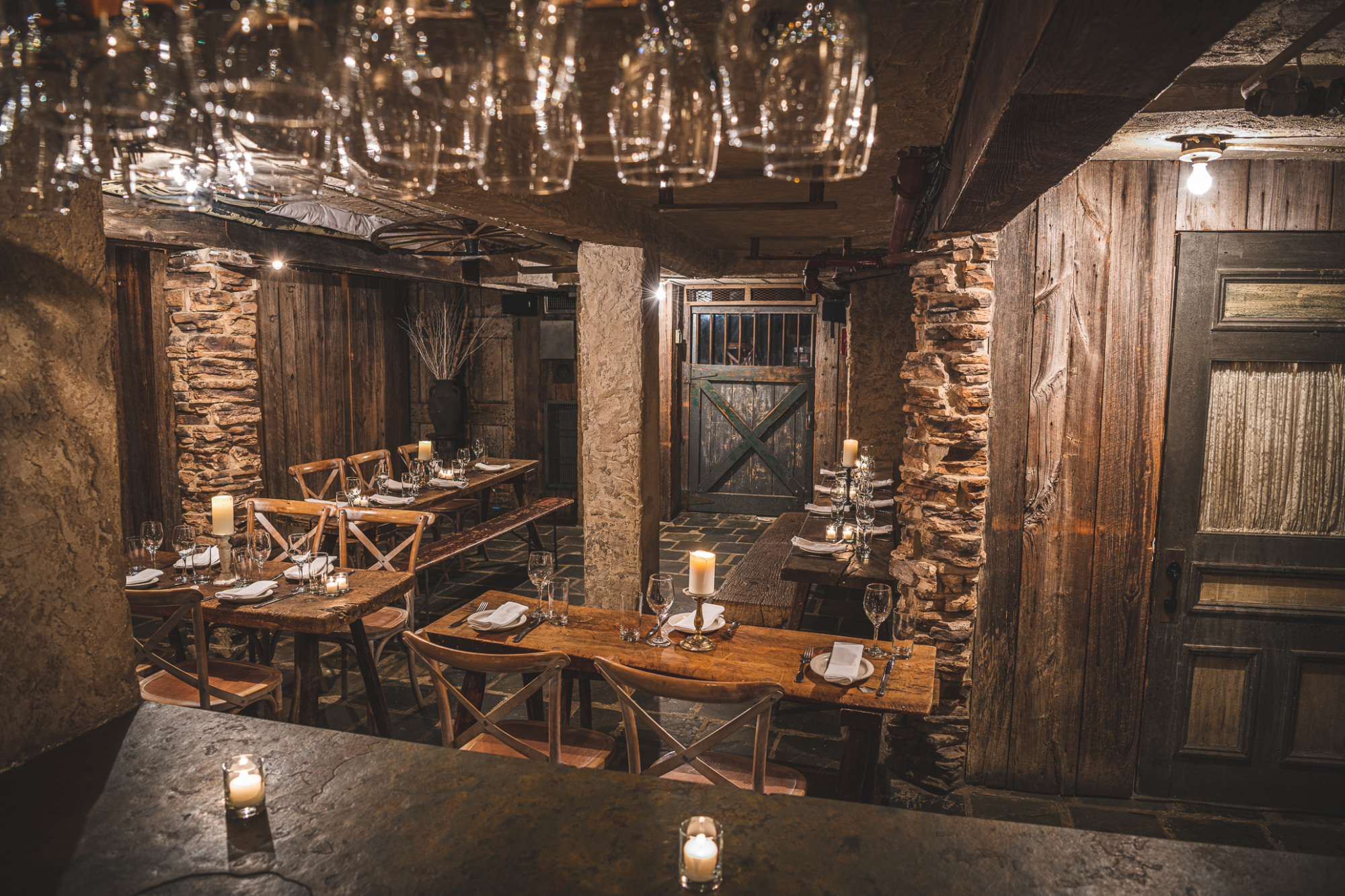
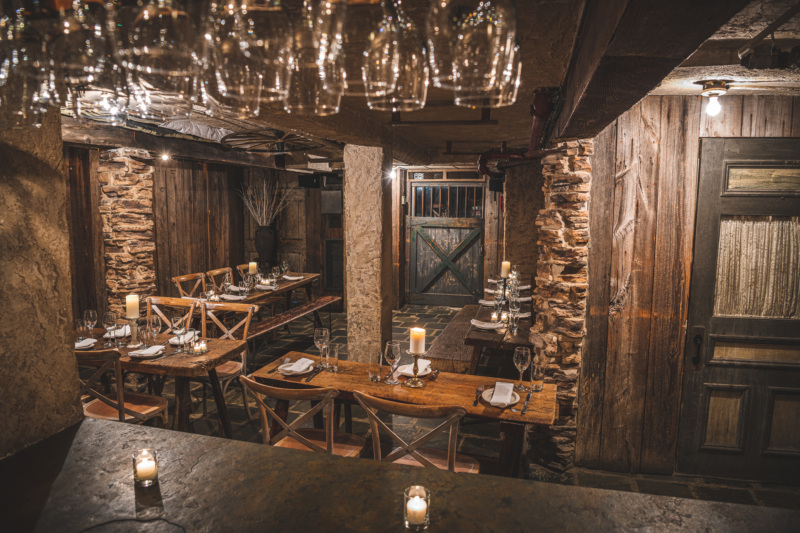
Peasant has been around for so many years — about 22 years now. It’s somewhat rare these days in New York to have these restaurants that continue to endure, especially in a city where so much seems so transitory. What do you think is the secret to Peasant’s longevity? And to your longevity as a restaurant owner and chef?
I think part of the secret of our, or my longevity with restaurant, like with Forge in particular, we don’t allow it to just get stale. For better or worse — and it’s not easy — but we’re aways coming up with an idea or two to try to keep the ball rolling, whether it’s new dishes or changing the menu, or new cocktails, or now hiring some new blood in there. You have to. Everything is very transient these days and I think a lot of that has to do sometimes with not understanding how lucky you are to have what you have. Sometimes we live in a society where you’re just always looking for the newest thing, it’s like a swipe right kind of thinking; it’s how the human brain works these days. But it’s OK to just enjoy what you have and make what you have be the best that you have.
So, I’m excited and so blessed to be able to move to 30 Hudson. It was time to kind of evolve a little bit in the space. In particular, with the world we live in today, it’s a necessity to have that kind of a private dining room space in your restaurant now. If we can keep the terms of the lease, Forge will be almost be 30 years old [if we can stay in that space].
What do you think of the restaurant landscape as it is in New York right now?
New Yorkers are survivors. I’ve been through a couple of things since becoming a restaurant owner: We had the financial crisis [in 2008]. We had [Hurricane] Sandy. Obviously, COVID. There was 9/11 if you want go back to when I was a cook. I find that New Yorkers in particular, when we get beat down, we’re a resilient group of people. I think COVID has been another example of New Yorkers just figuring out how to get through this together.
What kind of future do you want to see for your restaurants?
I want to have places that are there for 15 to 20 years, so that the people who work there don’t have to worry about their financial situations, and they know it’s a safe and happy environment. A lot of crazy things have been said about the restaurant business in the last five years, but I’m very proud to be in this business. That’s where the name for Respect Hospitality comes from — we respect each other, our guests, and ourselves. That’s what I want for the future, for where we’re going.
Deanna Ting is Resy’s New York Editor. Follow her on Instagram and Twitter. Follow Resy, too.
Discover More
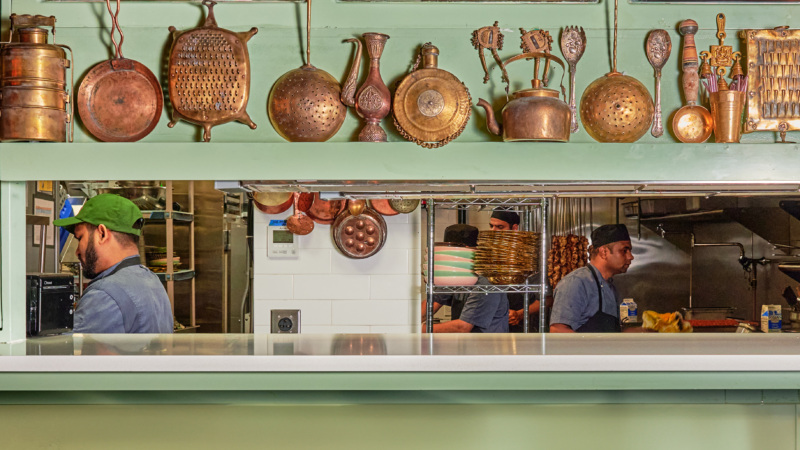
Stephen Satterfield's Corner Table


